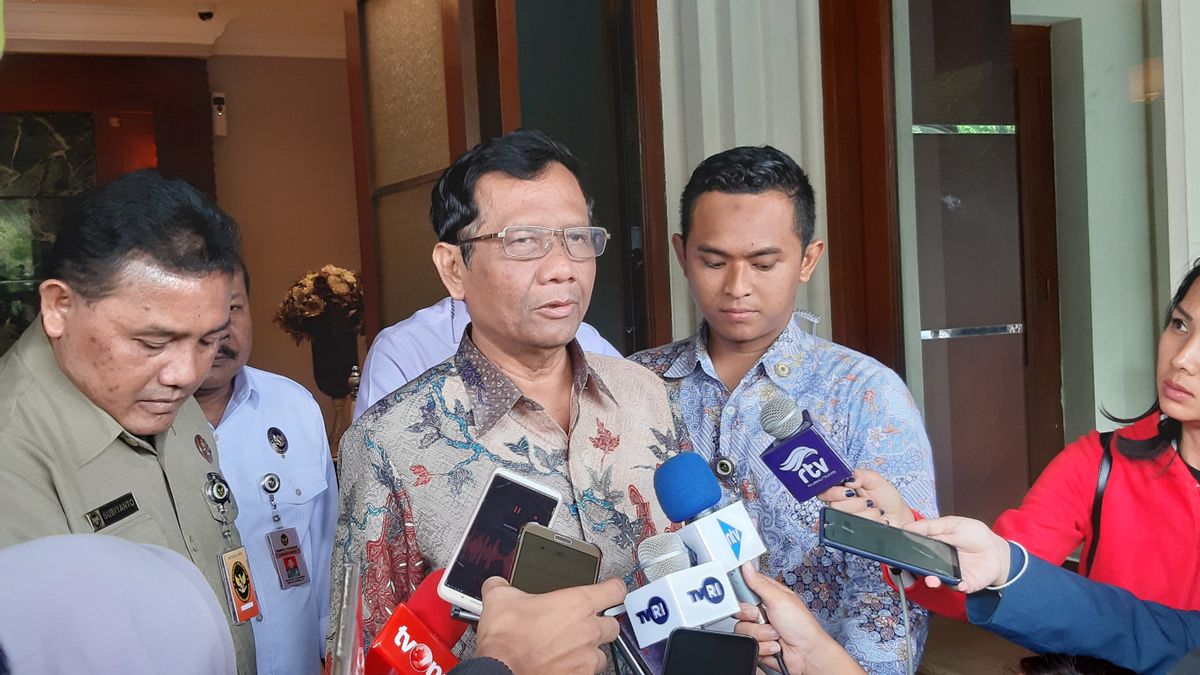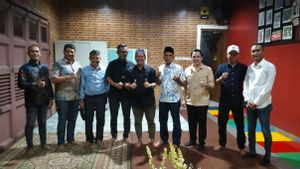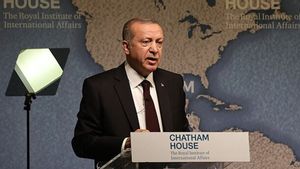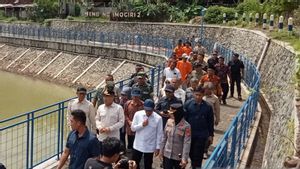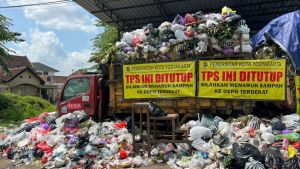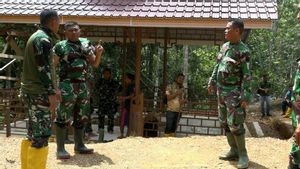JAKARTA - Three KPK leaders Agus Rahardjo, Saut Situmorang, and Laode M Syarif, together with other corruption activists, have submitted a Judicial Review or judicial review of the KPK Law, which was just passed this year, to the Constitutional Court (MK), Wednesday, November 20.
Coordinating Minister for Political, Legal and Security Affairs (Menkopolhukam) Mahfud MD said this step was a good thing to jointly test Law Number 19 of 2019.
"It's good (the submission) so that it will be tested there. Right there will meet opinions between one community group and another community group. Then differences with the government, similarities with the government will be met there," Mahfud told reporters at the Kemenkopolhukam Office, Jalan Medan Merdeka Barat, Central Jakarta, Thursday, November 21.
Thus, the polemic regarding the new KPK Law which is deemed to be debilitating can be resolved immediately on the constitutional track through a knock on the Constitutional Court Justices. "I think it is good, there are no legal obstacles and constitutional obstacles," he said.
Meanwhile, to issue a Government Regulation in Lieu of Law (Perppu) KPK, Mahfud is still in the same stance, awaiting the judicial review decision from the Constitutional Court. "If it is clear (waiting for the verdict of the judicial review)," said who was once the Chief Justice of the Constitutional Court.
Hope on the Constitutional Court Judges
Indonesia Corruption Watch (ICW) researcher Kurnia Ramadhana hopes that the Court can decide that the process of deliberating and ratifying the KPK Law is against the 1945 Constitution so that it must be canceled and returned to the old KPK Law.
Moreover, he added, serious problems actually arose not only in the realm of the material of the law, but during the discussion process and the ratification of the KPK Law, the problem had already occurred. For example, problems such as the new KPK Law are apparently not included in the 2019 priority national legislation program.
"The fact is that the DPR is still in violation, the KPK Law was still being discussed and passed last September," said Kurnia in his statement.
Apart from not being a law that is included in the 2019 Prolegnas, said Kurnia, this law is not a quorum. Moreover, when the ratification was carried out, less than 50 percent of the members of the DPR RI were present. In fact, as a law that is in the spotlight of many people, all members of Commission III of the DPR RI should be able to attend when the decision is made.
Finally, ICW also highlighted that the KPK was not invited during the deliberation process of the KPK Law at the DPR. "The KPK is an institution that will implement the a quo law. The anti-graft agency should be invited at every level of discussion," explained Kurnia.
A few days ago, Agus Rahardjo, Laode M. Syarif, and Saut Situmorang submitted a judicial review (JR) of Law Number 19 of 2019 concerning amendments to Law Number 30 of 2002 concerning the KPK.
The three KPK commissioners submitted applications on behalf of individuals and Indonesian citizens. In total, there are 13 applicants in their personal names. Among them are former KPK commissioners Mochammad Jasin and Erry Riyana Hardjapamekas, as well as a number of other anti-corruption activists.
In this petition, they submitted a formal judicial review, namely a review of the process of forming a Law. Broadly speaking, Laode revealed that there were three points that were inconsistent with the requirements for the formation of laws in the KPK Law.
KPK commissioners position themselves as KPK employees and citizens. Laode said the reason for positioning himself as a KPK employee was because this law had the potential to hinder the work of the anti-graft agency. Meanwhile, the position of citizens is because Laode feels that poverty in Indonesia is increasing due to the many corrupt practices.
"Those who have the most important legal standing besides citizens who deal directly with the KPK Law are KPK employees. Therefore, as individuals and as KPK employees we hope the court takes into account," said Laode.
The English, Chinese, Japanese, Arabic, and French versions are automatically generated by the AI. So there may still be inaccuracies in translating, please always see Indonesian as our main language. (system supported by DigitalSiber.id)
